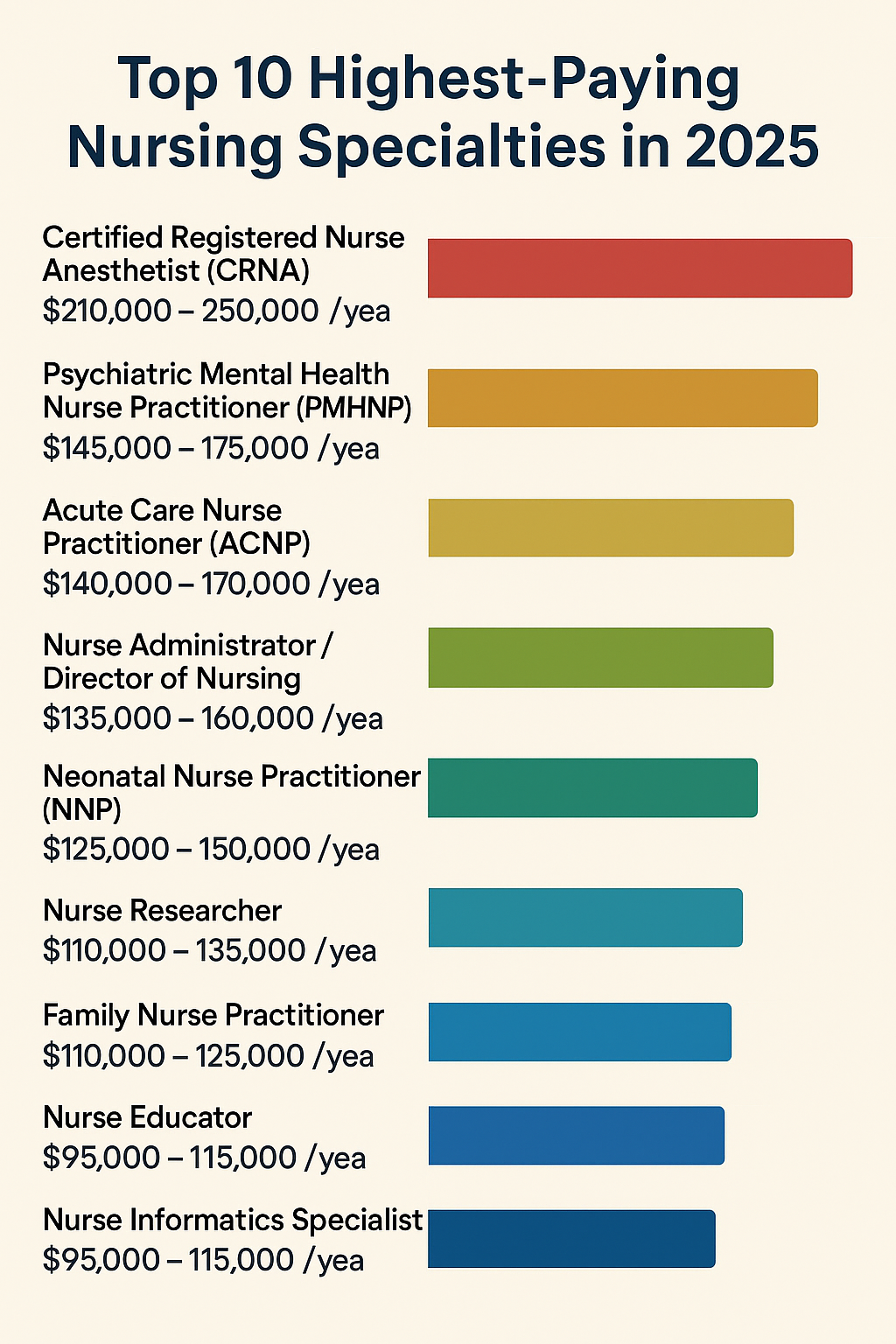The Hidden Lifeline in Nursing
If you ask almost any successful nurse how they got through the hardest days, you’ll usually hear the same answer: “I had a mentor who believed in me.”
Nursing mentorship isn’t a luxury—it’s a lifeline. From the shaky confidence of a new grad facing their first code blue, to the seasoned RN considering a leap into management, mentors provide direction, encouragement, and wisdom at every stage.
And here’s the best part: mentorship isn’t just for “rookies.” Even nurses with 10, 20, or 30 years of experience benefit from having a trusted guide. Healthcare changes constantly, and mentorship ensures we keep growing alongside it.
In this article, we’ll explore why mentorship is essential, how to find the right mentor, how to sustain the relationship, and why being a mentor is just as important as having one. Plus, you’ll get access to a free downloadable Nurse Mentorship Quick Guide to keep you on track.
Why Nursing Mentorship Is So Important
Let’s be real: nursing is tough. The long hours, emotional exhaustion, and constant decision-making can leave even the strongest among us questioning whether we’re cut out for this career. That’s where a nurse mentor steps in.
1. Confidence and Clinical Growth
New nurses especially struggle with confidence. Having a mentor to validate your thought process, walk you through unfamiliar situations, and share clinical pearls of wisdom can make the difference between panic and poise.
2. Career Advancement
Mentors often help nurses see opportunities they may not even know exist. Whether it’s advancing into leadership, going back to school for a BSN, MSN, or DNP, or exploring specialized certifications, a mentor can open doors and guide you through the process.
3. Burnout Prevention
We talk a lot about nurse burnout, and for good reason. According to the American Nurses Association, stress and turnover are at record highs. A mentor helps you cope by reminding you that you’re not alone, offering perspective, and teaching strategies to balance work and life.
4. Emotional Support
Sometimes, mentorship isn’t about career advice—it’s about having someone you trust to vent to, cry with, and laugh alongside. Nurses carry heavy burdens. Having a mentor means you don’t carry them alone.
Where to Find a Nurse Mentor
Finding a mentor isn’t about luck—it’s about being intentional. Here are several proven strategies:
🌟 Workplace Mentorship Programs
Many hospitals have formal nurse residency and mentorship programs for new grads or advanced practice roles. Ask your manager or educator if one exists in your facility.
🌟 Look Around Your Unit
Think about the nurses you admire—the calm ICU nurse during a code, the ER nurse who never seems to rattle, or the med-surg nurse who can juggle six patients and still smile. Those are great candidates.
🌟 Professional Nursing Organizations
Groups like the ANA, AACN, ENA, and AORN all offer structured mentorship opportunities as part of their membership. Specialty groups can connect you with mentors across the country.
🌟 Academia and Training Programs
If you’re in school, talk to your professors or clinical instructors. They often love connecting students with working professionals.
🌟 Online Networking & Mentorship Services
Don’t underestimate digital networking. Platforms like LinkedIn, nursing forums, and Facebook groups often have mentorship threads. You can also explore services like Mentor Matchmaker, which connect individuals and corporations with professional mentors in healthcare and beyond.
How to Keep the Relationship Strong
Getting a mentor is step one. Maintaining the relationship takes respect and effort.
✅ Set Clear Expectations
Don’t just say, “Will you be my mentor?” Instead, outline what you’re hoping for—clinical guidance, career planning, or leadership development.
✅ Respect Their Time
Mentors are busy. Always come prepared with focused questions and be mindful of their schedule.
✅ Stay Engaged
Follow up after tough shifts, share small wins, and keep the dialogue alive. Mentorship is a two-way street.
✅ Be Open to Feedback
Sometimes, the best advice is the hardest to hear. A good mentor challenges you to grow, not just pats you on the back.
✅ Show Gratitude
A thank-you note, coffee gift card, or even acknowledging them publicly at work goes a long way.
Mentorship Beyond the First Year
It’s a myth that mentorship is only for brand-new nurses. In fact, the most successful RNs continually seek out mentors as they grow.
- Mid-Career Nurses: Mentorship can help navigate transitions into specialty roles or leadership.
- Advanced Practice Nurses: NP and CRNA roles come with new pressures—mentorship keeps you grounded.
- Late-Career Nurses: Mentors at this stage often focus on legacy building, teaching, and succession planning.
Healthcare evolves fast. Having a mentor ensures you’re not left behind.
Becoming a Mentor Yourself
At some point, you’ll shift from “mentee” to “mentor.” This is one of the most rewarding transitions in a nurse’s career. By mentoring others, you:
- Reinforce your own knowledge and leadership skills
- Build trust and camaraderie on your unit
- Help reduce turnover and burnout among new nurses
- Leave a legacy that outlasts your career
The cycle of mentorship strengthens nursing as a whole. When one of us rises, we all rise.
Pro Tips for a Successful Mentorship Journey
- Keep It Professional: Friendships may develop, but start with professionalism.
- Use Technology: Zoom, phone calls, and even text check-ins make it easier to stay connected.
- Set Milestones: Review goals every 3–6 months to ensure progress.
- Evaluate Fit: If the relationship doesn’t click, it’s okay to move on respectfully.
Download Your Free Nurse Mentorship Quick Guide
To make your mentorship journey easier, I created a one-page Nurse Mentorship Quick Guide you can save, print, or share with colleagues.
👉 Download the Nurse Mentorship Quick Guide (JPG/PDF)
(Insert your WordPress media file link here once uploaded)
This guide includes:
- Key benefits of mentorship
- Step-by-step directions on finding a mentor
- Tips for keeping the relationship strong
- A quick reminder that mentorship is for all career stages
Authority Matters: Building Trust in Your Mentorship Journey
One of the best ways to strengthen your mentorship experience is to use trusted resources. For example, Mentor Matchmaker helps organizations and individuals set up effective mentorship programs. While designed for corporations, the principles apply to healthcare settings too—and nurses can learn a lot from cross-industry best practices.
Additionally, organizations like the CDC, ANA, and specialty groups publish evidence-based resources that can support your professional growth. Adding a blend of personal mentorship and authoritative guidance helps ensure you’re always practicing at the highest standard.
Final Thoughts: Your Career Deserves Guidance
No nurse should have to navigate their career alone. Whether you’re:
- A new grad battling imposter syndrome,
- A mid-career nurse debating grad school, or
- A veteran RN considering leadership or retirement,
mentorship provides the compass, the map, and the encouragement you need to keep moving forward.
So don’t wait—seek out a mentor today. And when the time comes, step into the mentor role yourself. Nursing is stronger when we lift each other up.
👉 Don’t forget to download your free Nurse Mentorship Quick Guide and start your mentorship journey today!





